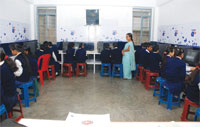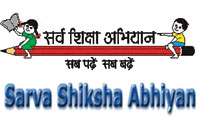BSE Training Institute Ltd has announced an international finance programme “Global Exposure in Financial Markets – Destination Canada” to offer exposure on financial markets of Toronto and Montr
Great Lakes Announces its Presence in Delhi NCR
Great Lakes Institute of Management announced its presence in Delhi with the launch of its programs at its Gurgaon campus. With its Delhi NCR campus, Great Lakes would be well-positioned to engage with and address the management talent needs of the leading Indian and MNC corporations in Delhi NCR and become a resource center for them providing consulting, research and customized programs to meet their needs and challenges.
The programs being launched in Delhi include programs for working professionals as well as the full-time flag ship one-year PGPM that is ranked among the best in the country. The programs for working professionals include the two-year PGWPM weekend program that has been successfully running at Great Lakes Chennai campus and the new PGWPM (Energy), an energy sector focused weekend program for working professionals.
The Post Graduate Working Professional Program in Management (PGWPM), one of the key offerings of Great Lakes for executive management education, is a two-year program with classes held on alternate weekends with similar courses and credits as the flagship PGPM program of Great Lakes. The program was launched in Chennai very successfully two years back and has helped many working professionals in South India upgrade their business skills. This program is now being launched in Delhi NCR to offer the same benefits to working professionals in North India. This highly acclaimed PGWPM program would commence in Gurgaon from January 2012 and is tailored towards industry professionals with a minimum of two years of experience. The program has a total fee of Rs 6 lakhs and admissions will open from the first week of October 2011.
IU to partner with two Indian management institutes
Through the Indiana University Kelley School of Business, Indiana University (IU) will expand its presence in India through partnerships with two Indian Institute of Management locations under memorandum of understandings signed on Aug 31st 2011.
The signings are part of an 11-day visit to India by IU President Michael A McRobbie and several university administrators and deans. During the trip, which includes stops in Mumbai, Bangalore, New Delhi and Hyderabad, the presidential group will meet with several Indian universities as well as alumni, businesses and leading politicians, including Indian Vice President Shri M Hamid Ansari.
“We live, work and learn in an increasingly global world, which demands that we provide our students and faculty with myriad international opportunities in order to provide the best education possible,” McRobbie said. “The partnerships we are forging and the contacts we are making in India are consistent with our international strategic plan and will open the door for future opportunities in this important part of the world.” IU already has strong student and faculty ties to India: Of the university's 7,000 international students, 800 are from India, the third-largest international population at IU. The university also has more than 240 faculty members of Indian descent.
The five-year agreement with Indian Institute of Management Lucknow will formalise and expand the relationship between the Kelley School and Lucknow, while the partnership with IIM Rohtak is the first collaboration between IU and the newest IIM.The memorandum of understanding with IIM Rohtak, also a five-year agreement, will initially focus on faculty research workshops and doctoral student development. Eventually, the Kelley School and IIM Rohtak hope to offer a dual executive MBA program targeting working professionals in India.
“This is a very special day for Indiana University, the Kelley School and India,” said Kelley School Dean Dan Smith. “At the Kelley School, we think these types of collaborations are the way of the future as we look to provide our students with a unique educational experience. IIM Lucknow is one of the most innovative institutes of its kind in India, and IIM Rohtak has the promise to become a marquee member of the IIM family. IIM is the leading name in business education in India, and we are proud to be partners with both institutions.”
India needs more than 2.91 lakh classrooms for elementary education
It is estimated that approximately 2.91 lakh and 1.77 lakh classrooms are required at the elementary and secondary stage of education respectively. As per District Information System for Education (DISE) 2009-10, there are a total of 58.00 lakh classrooms at the elementary level (Government
Skills Training for ITeS in South Africa: A PPP Model
The Public Private Partnership Model has evolved as a key requirement for sustainable and scalable developmental programmes. With skills training becoming an important requirement to cater to the needs of the rapidly growing economy, the featured case study demonstrates a method for effective skills training programmes through collaboration between NIIT, Confederation of Indian Industry (CII) and the Government of South Africa
By Ajai Manohar Lal, Chief Business Officer, Individual Learning Solutions – IT (International), NIIT
Skill development in the IT Industry has assumed great importance on account of the massive shortage of manpower in this sector. The National Skill Development Corporation has listed the IT and IT enabled services (ITeS) Industry as the one of the key growth sectors that would face severe manpower crunch if adequate arrangements are not made to train human resources. According to the reports of IDC, NASSCOM, close to US $ 1.7 trillion is spent on hardware and IT related services and this spending has been growing at more than 7 percent Compund Annual Growth (CAGR). It is anticipated that IT Services will grow at a CAGR of 6 to 7 percent till 2012 and ITES is expected to grow at 10 to 12 percent over the same period. Several private industry players in the skills training sector have entered into the training field in order to cater to the manpower requirements. This need is not only limited to India but also in various other countries.
One of the innovative initiatives in this field has been that of the Department of Economic Development and Tourism of Kwa Zulu Natal
New Pedagogy through Mobile Technology for Parents with Special Needs Children
 Mobile technology has come to be used extensively across the world. The article features the use of mLearning in Malaysia for various purposes, including those of addressing the needs of parents with special needs children. The DHH Mobile Project of Universiti Sains Malaysia uses the technology to 'bridge' education divide by providing extensive research for Deaf or Hard of Hearing (DHH) children
Mobile technology has come to be used extensively across the world. The article features the use of mLearning in Malaysia for various purposes, including those of addressing the needs of parents with special needs children. The DHH Mobile Project of Universiti Sains Malaysia uses the technology to 'bridge' education divide by providing extensive research for Deaf or Hard of Hearing (DHH) children
By Dr Issham Ismail, Universiti Sains Malaysia
Approximately 90 to 95% of Deaf or Hard of Hearing (DHH) children are born to hearing parents who know very little about deafness and its diagnosis or impact on the child development. It is axiomatic that the hearing parents of these DHH children need as much information as possible to help them to deal or cope with their children. Hearing parents of DHH children May experience many challenges and obstacles that affect multiple areas of family life. There are four domains of family life namely the interactions, resources, parenting and support services, that have been noted to be highly impacted by deafness.
Parents need to find adaptive ways to cope with these demands in their family life, which in turn will promote their own adjustments and functioning as parents of DHH children. In line with these demands, a research was conducted by Hintermair in 2006 to promote human strengths and parents' quality of life. Hintermair found that shaping an effective training by the healthcare professionals' is vital to identify factors that promote successful coping with the demands faced by parents of a child with a cochlear implant (CI). Similar scenario is expected in the case of parents to DHH children.
In Malaysia, there are very few hearing parents who know about deafness and its impact on the child language and language acquisition development. Most of these parents are either ignorant of the importance or do not have access to information. Thus, the DHH Mobile Project was initiated by mobilelearning@usm, a part of Universiti Sains Malaysia, in August 2010 to fulfill the needs of hearing parents of DHH children in terms of basic sign language. As such, these parents are able to interact effectively with their improved knowledge in basic sign language. The objective of the project has been to introduce educational pedagogy for parents of special needs through DHH MMS.
A pilot study was conducted on the parents of DHH students in Federation School for the Deaf, Pulau Pinang, Malaysia. At the beginning stage of the project, parents were asked to rate their level of knowledge on the basic hand sign language and their consent was gathered to sent MMS messages. The MMS content of the basic hand sign language included the alphabets A-Z and numbers 1-9 which was to be transmitted using an in-house interactive system. This study had been performed for 3 months among the normal parents whereby MMS content was loaded into the system for a scheduled delivery on a daily basis.
Recent advancement in mobile technology has given a boost to many sectors and services which includes the education sector. Mobile technology applications provide unique opportunities for both learners and educators, by providing greater flexibility, thereby enabling education to take place anytime, anywhere and by anyone without boundaries. Therefore, mobile technology serves as a new pedagogy for parents with special needs children.
Attractions of Mobile Technology
Some of the special features that have made the technology more innovative are its easy access and affordability. The mobile phone technology can be utilized anytime, anywhere and anyone for DHH purposes. The mobile technology provides an opportunity for a short piece of information to be delivered to the students or parents without the constraint of space and time.
The DHH Mobile Project has been used to help parents in accessing content (sign language) and learning materials, assisting parents of Deaf and Hard of Hearing (DHH), and improve interaction between parents and children. It has provided a platform for sign language educators for dissemination of information and knowledge to the public. Users also have the option of browsing through the archives at their convenience.
Mobile technology applications provide unique opportunities for both learners and educators, by providing greater flexibility, thereby enabling education to take place anytime, anywhere and by anyone without boundaries
How Mobile Technology Scores Among Users
Several previous research studies have encompassed preliminary study on the acceptance on mobile phone usage and SMS-learning amongst distance learners. Presently, the team at USM has focused on 2 main cohort of mobile learning which are formal and informal pocket education. Formal Pocket Education embraces System Pocket Education which proposes a mobile platform via Pocket Education. It provides mobile learning services which suit the requirements and needs from various users, particularly for university subjects. The project also explores the awareness of mobile learning system in education world among IPTA's in Malaysia.
Linguistic Pocket Education plays a vital role in identifying the communicative functions of SMS messages which are important to be employed in SMS learning from the perception of USM students and instructors. On the other hand, Value Added Service (VAS) is used to design and develop a SMS system to support teaching and learning which will track the navigating behaviour of students using SMS as a learning tool. In this cohort, project on the special education needs is focused in identifying the level of knowledge in sign language among the normal parents of deaf students before and after using the mobile learning. Users receive their messages upon registration via the DHH Mobile site by using their respective hand phone numbers. The DHH Mobile management unit is fitted with multi-provider slot to cater to the different lines subscribed by the users and thereby reducing the cost of delivery Apart from receiving messages, users have the option to browse the archives at their convenience. Users are also able to pose a question via the hand phone that will appear in the management site for the attention of the Sign Language Educator. The programme consists of a web-based management unit that was home-grown and can be offered on a trial period.
The second cohort explores informal pocket education merely by addressing aspects on Islamic, sustainability and health issues. Sustainability issue is also a focus in this project on examining the awareness of communicative functions of SMS messages which are important to be employed in SMS learning from the perception of USM students and instructors. The project involves health education which is crucial on postnatal care by providing SMSs to new mother's on physical and mental information during the confinement period.
Public Private Partnerships: The Fast Track Way to Education Reforms
The education sector today is seeing tremendous amount of enthusiasm and participation from all stakeholders across spectrum. The past few years have witnessed the maximum number of educational reforms being undertaken by the Government. The education targets set by the government have been hugely ambitious and aggressive by all means. The Government of India is now open to Public Private Partnerships (PPP) like never before, in order to achieve its goals.
If we glance through the higher education sector, the government attempts to attain a GER of 30 percent by 2020, which effectively means reaching an enrollment figure of 40 million. It is estimated that an additional 33,000 institutions will be required, with an investment of `1,000,000 crores to accomplish this mammoth task.
Even in the skills training field, the current national target is to skill 500 million people by 2020. However, with the present training capacity of India, it is estimated that we will be able to skill only 4.2 million per year. That leaves a gap of upto 10 times in achieving the national target!
Attaining the said numbers would require colossal amount of investment and resources which the government alone cannot strive to achieve. In this, the PPP model has to be adopted with full force and vigor.
The National Knowledge Network throws open tremendous possibilities for all solution providers in the education sector. The National Mission on Education through Information and Communication Technology (NMEICT), National Programme for Technology Enabled Learning (NPTEL) and related IT activities of the government have all emphasised on the involvement of the private sector to address educational concerns. The immense amount of research and development efforts undertaken by the private stakeholders and the diverse number of educational tools, if effectively deployed, would help put governmental efforts on the fast track.
Today, India is a leader of the education sector. Partnership model would help actualise the educational priorities of the country, and also integrate the efforts of a large segment of education stakeholders into the developmental arena. With the amalgamation of the best of both worlds, education will only scale new heights in the coming years.
Business News: September 2011
Sterlite Technologies to Enhance Connectivity in Higher Education
 Sterlite, a leading global provider of connectivity solutions for the power and telecom industries, announced that it has been chosen by Bharat Sanchar Nigam Limited (BSNL) to enhance its network for promotion of Higher Education in India.
Sterlite, a leading global provider of connectivity solutions for the power and telecom industries, announced that it has been chosen by Bharat Sanchar Nigam Limited (BSNL) to enhance its network for promotion of Higher Education in India.
The scope of the project includes establishment of world-class connectivity for 120 universities across the country. This infrastructure would act as an information backbone, enabling every university in the network to function as an E-university. This platform would facilitate high bandwidth data transmission that is essential for e-learning and video- based learning. Sterlite would connect 30 universities to this backbone during FY12, would connect the remaining 90 universities by FY14 and would manage the network for five years thereafter. Sterlite has streamlined its efforts to implement the network well within the required project schedule. This project is part of the ‘National Mission on Education through Information and Communication and Technology (ICT)’ undertaken by the Ministry of Human Resource Development (MHRD), Government of India. The Mission has been envisaged to leverage the potential of ICT, in teaching and learning process for the benefit of all the learners in Higher Education Institutions in any time anywhere mode.
NIIT Tech acquires Spanish firm Proyecta Sistemas for $7m, stock gains 3%
 NIIT Technologies acquired Spainish software services firm Proyecta
NIIT Technologies acquired Spainish software services firm Proyecta
Sistemas de Informacion SA for for USD 7 million. “We will end up paying 70%
of the revenue (for acquisition) which is USD 7 million,” Arvind Thakur, CEO,
NIIT Technologies, said.
He said the company had revenue of USD 10 million in last financial year and has EBIDTA (Earnings Before Interest, Taxes, Depreciation and Amortisation) of 10%.
“From today we will start consolidating revenue of Proyecta with NIIT Technologies,” Thakur added. The acquisition enables NIIT Technologies to enhance its European footprint with Proyecta’s experience in travel and financial services segments.
NIIT Technologies’ Europe, Middle East and Africa (EMEA) operations contribute 35% to its global revenues.
Headquartered in Madrid, Proyecta, with over 100 consultants that industry players in business intelligence, web and mobility applications.
Shares of NIIT Technologies closed at Rs 196.25 on 16 August
National News: September 2011
NCERT, NIOS submit proposal for 24X7 TV channel
 National Council of Educational Research and Training (NCERT) and National Institute of Open Schooling (NIOS) have submitted a proposal for launching 24X7 television channel to cater to the needs of school education and adult literacy.
National Council of Educational Research and Training (NCERT) and National Institute of Open Schooling (NIOS) have submitted a proposal for launching 24X7 television channel to cater to the needs of school education and adult literacy.
The Central Institute of Educational Technology, National Council of Educational Research and Training, New Delhi and the National Institute of Open Schooling, NOIDA, Uttar Pradesh will be the lead partners. The Department of Adult Education and its sister agencies in the States, State Institutes of Educational Technology, Kendriya Vidyalaya Sanghatan, Novodaya Vidyalaya Samiti and other educational agencies in the Centre and the States will be invited to participate and contribute.
Kerala’s IT@School project imparts massive ICT training to parents
 Kerala’s IT@School Project imparted massive ICT (Information Communication Technology) training to parents, as part of 100 days programme of the Government. The programme has been undertaken at all the High Schools of the State. As part of the programme, a One-day ICT awareness session was conducted first in a campaign mode wherein parents got a bird’s eye view on the new outlook of the classrooms along with the upgraded educational systems, ICT facilities made available in schools, ICT enabled education, functioning of school IT Clubs, IT Mela, various ICT trainings for students, more about IT@School ViCTERS channel, prevention of Cyber crimes.
Kerala’s IT@School Project imparted massive ICT (Information Communication Technology) training to parents, as part of 100 days programme of the Government. The programme has been undertaken at all the High Schools of the State. As part of the programme, a One-day ICT awareness session was conducted first in a campaign mode wherein parents got a bird’s eye view on the new outlook of the classrooms along with the upgraded educational systems, ICT facilities made available in schools, ICT enabled education, functioning of school IT Clubs, IT Mela, various ICT trainings for students, more about IT@School ViCTERS channel, prevention of Cyber crimes.
In continuation to the ICT awareness programme and as part of ‘Software Freedom Day’ celebrations on 17th September 2011, specific ICT training would commence in all High Schools for those parents who are keen to learn more on ICT. The training would be conducted in batches without affecting the normal functioning of schools. A new training module has been developed for the programme, which comprises of usage of Free Software, Operating System, Word Processing, Malayalam Computing, and Internet. With the acquisition of these skills, the parents would be able to equip with functional knowledge on day-to-day IT activities like working of storage devices, CD-writing, Emails, Malayalam Typing, Cyber security.
 Vocational Education in North East
Vocational Education in North East
The IGNOU Institute for Vocational Education & Training (IIVET), Shillong – which forms a part of the Education Development of the North East Unit (EDNERU) – has tied up with Aircel Ltd. for a vocational training and Computer Literacy Programme for poor school children from classes 6 – 12. The six months’ programme began on 25th July, 2011, with 240 students attending the first batch. The other partners in this project include Empower Pragati and Microsoft.
Govt identifies Special Focus Districts under SSA
 The Department of School Education and Literacy has identified 389 Special Focus Districts (SFD) under Sarva Shiksha Abhiyan (SSA) for the year 2011-12 on the basis of (a) Programme category gaps,(i) districts with a classroom gap exceeding 3000 classrooms, (ii) districts with more than 20,000 out-of-school children, (iii) gender gap in enrollment exceeding 10 percent at primary and 20 percent at upper primary level, and (iv) retention rate lower than 60 percent and (b) Social category gaps, districts with more than 25 percent Scheduled Caste or Scheduled Tribe population, 20 percent Muslim minority population, as well as districts affected by Left Wing Extremism and Border Area Districts. Several districts have been classified as SFDs under one or more of the above categories.
The Department of School Education and Literacy has identified 389 Special Focus Districts (SFD) under Sarva Shiksha Abhiyan (SSA) for the year 2011-12 on the basis of (a) Programme category gaps,(i) districts with a classroom gap exceeding 3000 classrooms, (ii) districts with more than 20,000 out-of-school children, (iii) gender gap in enrollment exceeding 10 percent at primary and 20 percent at upper primary level, and (iv) retention rate lower than 60 percent and (b) Social category gaps, districts with more than 25 percent Scheduled Caste or Scheduled Tribe population, 20 percent Muslim minority population, as well as districts affected by Left Wing Extremism and Border Area Districts. Several districts have been classified as SFDs under one or more of the above categories.
Districts have been categorised as per the above criteria to enable them to make focused interventions for overcoming specific gaps in their overall endeavor to achieve universal elementary education. The categorisation of districts as SFDs helps the states to plan and implement interventions in a need based manner, with the flexibility of changing these districts from year to year as the parameters change.
IGNOU trains teachers to develop online courses
 IGNOU has organised three-day conference to bring about a change in the way lessons are imparted to the students who are occupied by the teaching materials in one corner, huge chunk of registers on other; supplementary materials on one shelf and their library routine on the other.
IGNOU has organised three-day conference to bring about a change in the way lessons are imparted to the students who are occupied by the teaching materials in one corner, huge chunk of registers on other; supplementary materials on one shelf and their library routine on the other.
The Inter University Consortium (IUC) of the university organised a workshop to train the trainers who were invited from various universities in order to address the change, which has struck the 21st century teachers and learners. The change is the online learning/ teaching experience that has made easily accessible learning/ teaching material just a click away. Many open universities in the world and other traditional universities are developing online courses to enhance the reach of their university’s study materials through videos, web content, internet, satellite or CDROM. Private institutions are also offering online courses. Online education is becoming popular day-by-day, but adapting face-to-face courses for online instruction presents many challenges and IGNOU took the initiatives to address them.
The training programme was attended by twenty one faculty members from State Open Universities, Private Universities offering courses through Distance Mode and Faculty of Distance Education Institutes in Formal Universities like Jamia Hamdard , NIMS University , Anna University , Karpagam University, Dr C V Raman University, Institute of Advanced Studies in Education University, Tilak Maharashtra Vidyapeeth , Lovely School of Open and Distance Learning , Krishna Kanta Handiqui State Open University, Dayalbagh Educational Institute, Rashtriya Sanskrit Sansthan and UP Rajarshi Tandon Open University.
This training workshop was imparted for awareness and Capacity Building programme to the faculty of universities (Open, Private
The National Knowledge Network
The Union Budget of the year 2011-12 specified the intention of the Government to connect major educational institutions across India with a high speed network that will enable the transmission and sharing of knowledge resources. The National Knowledge Network (NKN) will play a major role in taking quality education to distant and remote areas. The article highlights some key elements of NKN and its role in creating a knowledge society
By Sheena Joseph
Higher education in India has figured in the priority list of the Government's development agenda over the last few years. The ever increasing demand for quality education and the burgeoning youth population has necessitated the need to make educational resources available and accessible to all learners, irrespective of geographical barriers. Here is where the National Knowledge Network (NKN) will act as a major factor in dissemination of education to the masses.
The efforts progressively highlights the considerable measures being taken by the government to integrate technology into education and the acceptance of ICT as a tool for change. The technology enhanced network is envisaged as a channel that will take knowledge resource to all, thereby breaking the barriers in education outreach. N K Sinha, Additional Secretary (TEL), Ministry of Human Resource Development, Department of Higher Education, Government of India is emphatic in pointing out the importance of technology, and says, “Technology is playing a very major role in providing the multiplier effect and in improving the Gross Enrollment Ratio (GER) in education. It has helped in quality enhancement efforts, ameliorating teacher shortage, taking care of the needs of the working population by providing access to education anytime, anywhere and teacher empowerment.” The NKN project will see massive use of technology to connect institutions of learning across India, and thereby putting to use the immense potential of ICT in education.
 “
“



















